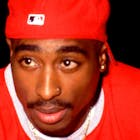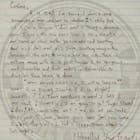I even met Tupac once — at prom. He was the godfather and date of my schoolmate, Tashauna Howard. Amidst the excited whispers that swirled around the Biltmore Hotel, I mustered the courage to seize the moment: "I'M BRENDA'S BABY!" I shouted, my voice cutting through the clamor.
Tupac's eyes met mine and in a lower tone, I explained, "My mom's name is Brenda. But Pac, I wanna work in TV and film production... Can you help me?" With a smile, he imparted, "Look Hear Productions. Check'em out. They're behind my music videos." This invaluable connection led to my internship; a door opened by Tupac's generosity.
Tragedy struck in 1996 when Tupac was entangled in a brawl within a Las Vegas casino. Leaving with Suge Knight, his label manager at Death Row Records, they became targets on the Vegas strip. The barrage of bullets left Tupac grievously wounded, and he succumbed to his injuries in the days that followed.
The following spring, I attended the Vibe Magazine unofficial after-party for the Soul Train awards at the Peterson Automotive Museum, walking distance from Look Hear Productions. Inside the party was a bevy of celebrities, among them, Sean Puffy Combs, and Biggie Smalls.
The party was lively, but the tension in the air was palpable. Hip-Hop's East and West Coast were still divided by the beef between Tupac and Biggie. The chants of "Bad Boy" erupted when Biggie’s hit single, “One More Chance,” played.
Further into the night, the MC shouted, "Rest in Peace Tupac," while the DJ played “I Get Around.” Afterward, the crowd erupted into a reverberating refrain of “TU….PAC! TU….PAC!" which some could have interpreted as a counter to the earlier “Bad Boy” chant. No matter the interpretation, the embers of something tragic were burning.
After the party ended, the crowd left the museum in a relatively unremarkable manner. But then, within minutes, gunfire erupted, shattering the veneer of celebration and killing Biggie Smalls.
The loss of Tupac and Biggie deaths were seismic events, ruptures that sent shockwaves through our community. We had lost two of our visionaries — our go-to's — for insights into our existence, state of affairs, what we wanted for ourselves, and the challenges that came along with that pursuit.







